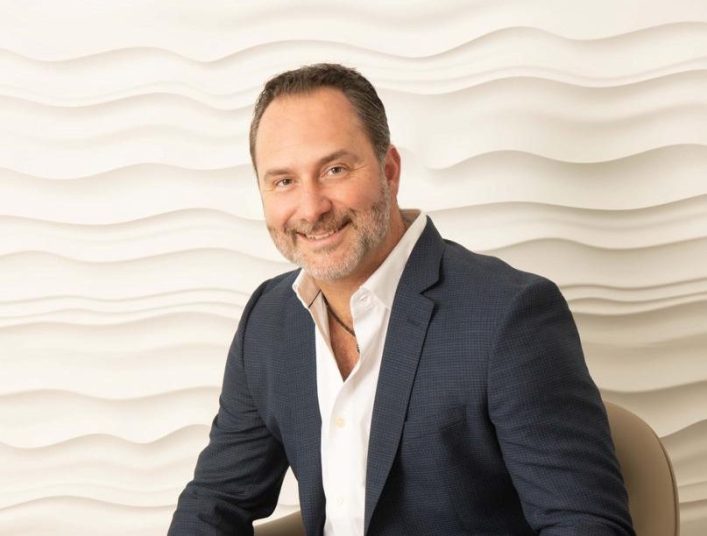Expert Surgeon Says Psychological Preparation is Essential for Successful Cosmetic Surgery

Research shows that the way people view themselves, whether good or bad, comes from society. With celebrity influencers on social media now being a big part of where people get their cultural messages, many people have developed poor views of themselves and their appearance. This may develop into a condition called body dysmorphic disorder (BDD), a mental illness affecting some 200,000 Americans every year.
Dr. Alexander Earle sees these issues daily in his practice in Miami, Florida. An Ivy League educated, Duke-trained, double board-certified plastic surgeon, Earle wants to educate everyone about the more profound psychological effects of undergoing cosmetic surgery, from boosted confidence to potential risks of body dysmorphia, an unrealistic view of how they look.
“The negative effect is that social media often establishes an unrealistic expectation of beauty. Many patients don’t realize that the videos and photos they see are heavily edited and not what the models actually look like,” Earle points out.
A 2023 report published in the medical journal Clinics in Dermatology analyzed many recent studies on body dysmorphia. The authors say the research strongly shows that people who frequently follow social media often have unrealistic expectations of the ideal body image and considerable concern with their appearance, and overall anxiety.
The report also looks into the evidence surrounding the perception of beauty, cultural aspects of aesthetics, and social media’s consequences, especially on body dysmorphic disorder.
“The exposure to digital conference platforms has increased significantly, leading users to check their appearance constantly and find flaws in their perceived virtual appearance,” the authors write.
The paper also points out that social media can make body image dissatisfaction much worse and lead to depression and eating disorders, which are linked to body dysmorphic disorder, which is a flawed view of people’s own bodies.
“Additionally, excessive social media use can increase preoccupation with imagined image defects among BDD patients, leading them to pursue minimally invasive cosmetic procedures and plastic surgery,” the authors also say.
Dr. Earle says it’s vitally important to ensure patients are psychologically ready for surgery. Earle and his team at Pure Plastic Surgery screen prospective patients seeking cosmetic surgery for potential psychological risks, such as body dysmorphia. Earle emphasizes that this is not a one-time evaluation but continues in steps throughout the pre-operative period and into post-operative care.
“At every step, we must ensure the patient has realistic and achievable expectations. If at any point we believe we will not be able to reach the patient’s expectations, then we decide not to move forward with the surgery,” Earle explains. “We provide multiple avenues of education, as well, via our social media channels and this is how patients start to get to know us. We believe that getting to know us, easy communication, unwavering support, and education are all key to easing the patient’s concerns and anxieties and ensuring their readiness for surgery.”
This attention to the client’s mental well-being is critical but is not always provided by plastic surgeons or clinics, Earle says. If the patient is not supported psychologically and emotionally, he stresses, they may not take appropriate care of themselves.
“The care before and after surgery is just as important as the surgery itself. Improper care can lead to an increase in complications, poor outcomes, or patient dissatisfaction,” he says. We have a partner called POP Recovery Systems that reaches out to the patients as soon as they book and have a date for their procedure. POP Recovery Systems provides mental health and emotional counseling, among many other things, to make sure the patients are ready for surgery.”
Despite social media’s bad reputation, Alex Earle believes that there’s a positive side that allows for acceptance and education.
“Via social media, patients are able to see that plastic surgery is quite common, acceptable, and available,” Dr. Earle emphasizes. “You should not feel ashamed of pursuing plastic surgery. In fact, it can be empowering and a way to take charge of your life. Doing something for you and your self-esteem.”
Earle and his staff are careful to warn people about the limits of social media. In addition to its educational values, it can provide false and sometimes dangerous ideas. Users must use reliable sources to research the credentials of anyone online who gives any health advice.
“We see that today patients are much more educated on the procedures, how to prepare, what to expect, and what the possible complications are,” Earle says. “We do have to ensure we are guiding the patients to the right channels that provide sound and solid advice and education. They should stay away from disreputable sites such as ‘surgical bloggers’ or people claiming to be experts in a field they are not trained in.”
Dr. Alexander Earle and the team at Pure Plastic Surgery dedicate themselves to staying current with the latest research, knowledge, and techniques for cosmetic surgery and patient treatment. Earle provides training courses at his practice for other surgeons; he is also actively involved in research, and his work has won awards and been published in peer-reviewed journals and book chapters.
Article by Kali Sturgis
Medical Disclaimer: This article is for informational purposes only and does not substitute for professional medical advice. If you are seeking medical advice, diagnosis or treatment, please consult a medical professional or healthcare provider.
Woman's World partners with external contributors. All contributor content is reviewed by the Woman's World editorial staff.















